World considers a Donald Trump presidency, and many shudder
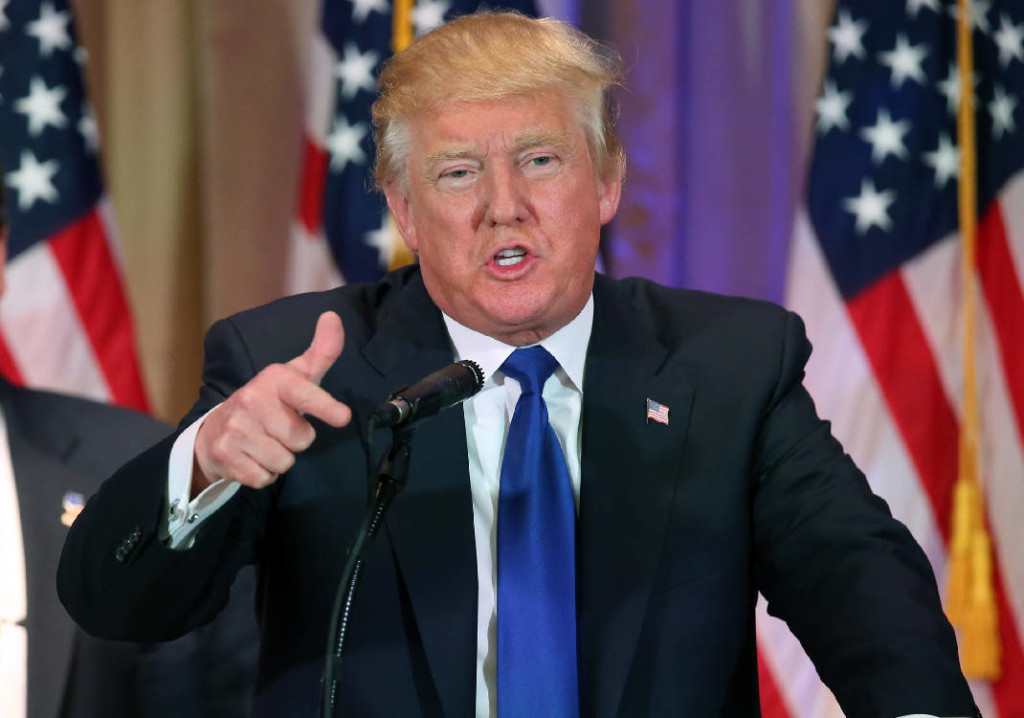
Following Donald Trump‘s breathtaking string of Super Tuesday victories, politicians, editorial writers and ordinary people worldwide were coming to grips Wednesday with the growing possibility the brash New York billionaire might become America’s next president, a thought that aroused widespread befuddlement and a good deal of horror. “The Trump candidacy has opened the door to madness: for the unthinkable to happen, a bad joke to become reality,” German business daily Handelsblatt wrote in a commentary for its Thursday edition. “What looked grotesque must now be discussed seriously.” There was also glee from some Russian commentators at how American politics is being turned topsy-turvy in 2016. And in Latin America, Ecuador’s president predicted a Trump win could boomerang and become a blessing to the continent’s left. However, the dominant reaction overseas to the effective collapse of the Republican Party establishment in the face of the Trump Train appeared to be jaw-dropping astonishment, mixed with dread at what may lie ahead. “The meteoric rise of the New York magnate has left half the planet dumbfounded,” wrote columnist Andrea Rizzi in Spain’s leading newspaper, El Pais. “To consider Donald Trump a political clown would be a severe misconception,” said another European daily, Salzburger Nachrichten. If Trump is elected to the White House, the Austrian paper predicted, his ideas “would bring major dangers for the USA and the world … basically a nationalist-chauvinist policy that would make America not great but ugly, and risk the stability of the international order.” Eytan Gilboa, an expert on U.S.-Israeli relations at Israel’s Bar-Ilan University, said the best word to describe Israeli feelings about Trump is “confusion.” There are certain parts of him that Israelis can relate to, such as his aversion to political correctness, his tough stance on Islamic terrorism and his call for a wall with Mexico to provide security, Gilboa said. But others have been particularly jarring to Israelis, such as comments about Jews that many consider insensitive and his derision of U.S. Sen. John McCain‘s captivity in Vietnam. “This is something that every Israeli would reject. It’s a highly sensitive issue in a country where prisoners of war are heroes and people go out of their way to release them,” he said. Trump has drawn concern in China, but not a huge amount of attention despite Trump repeatedly invoking the Asian giant during his campaign to cite U.S. weakness that he would turn around, accusing Beijing of manipulating its currency, stealing American jobs and unfair competition. Chinese may not be taking his comments too seriously because they believe he won’t be elected or that he’d modulate his positions once elected, said Xiong Zhiyong, international relations expert at China Foreign Affairs University. “If, hypothetically, Trump became the U.S. president and he held on to his stance and proposals made during the election, China-U.S. relations would be in big trouble in many aspects such as security and economics,” he said. “In that case, the U.S. foreign relations policies will undergo a huge change.” Thuraya Ebrahim al-Arrayed, a member of Saudi Arabia’s top advisory body, the Shura Council, said a Trump presidency would be “catastrophic” and set the world back “not just generations, but centuries.” “We pray to God that a racist, politically incorrect personality does not win the election,” she said. “How can he tell Muslim students going there to study he will shut the door in Muslim faces?” Writing in the Financial Times of London, Martin Wolf summed up the mood of a good share of Europe’s business and economic elite, arguing that it would be a “global disaster” if Trump, who won seven states in Tuesday’s Republican contests, made it all the way to the Oval Office. “Mr. Trump is a promoter of paranoid fantasies, a xenophobe and an ignoramus. His business consists of the erection of ugly monuments to his own vanity. He has no experience of political office. Some compare him to Latin American populists. He might also be considered an American Silvio Berlusconi, albeit without the charm or business acumen,” Wolf wrote. He also said Berlusconi, a former Italian prime minister and media tycoon, “unlike Mr. Trump never threatened to round up and expel millions of people.” Wolf’s verdict: “Mr. Trump is grossly unqualified for the world’s most important political office.” A Japanese online commentator used much the same language, and likened the Republican front-runner to the evil nemesis of wizard Harry Potter. Trump’s unexpected political rise reflects “elitism and opposition to globalization, but at its heart is a xenophobia and populism that comes from ignorance,” said Masato Kimura, former London bureau chief for the conservative newspaper Sankei Shimbun. “Although this is another country’s election, Japan’s allies should raise their voices to help prevent the birth of a ‘Voldemort’ president in the United States.” In the Mexican newspaper Reforma, columnist Sergio Aguayo compared anti-Mexican sentiments unleashed by Trump to the anti-communist Red Scares of the 20th century, and accused Trump of igniting a “brown panic.” “We must answer again and again Donald Trump, and make the U.S. government understand that we’re not willing to continue being pointed out as the only ones responsible for problems that are also caused by the United States,” Aguayo wrote. La Jornada, a leftist Mexican paper, ran a caricature of Trump wearing a “KKK” necktie and declaring, “I will make cremation ovens for the Mexicans and Muslims … and they will pay for their construction!” In the moderate and predominantly Muslim West African nation of Senegal, Mame Ngor Ngom, editor-in-chief of La Tribune, a weekly newspaper, expressed hope that in the final analysis, Americans will not be “so thoughtless” as to hand Trump their country’s highest office. “We think that the Americans won’t vote for him. They already paid the consequences with George W. Bush. … Donald Trump will fail,” the Senegalese journalist predicted. In Russia, some took delight in how messy U.S. politics have become. The popularity of Trump and Democratic presidential hopeful Sen. Bernie Sanders, who took four states on Tuesday compared to
John Merrill: 1.2 million voted in Alabama’s presidential primary
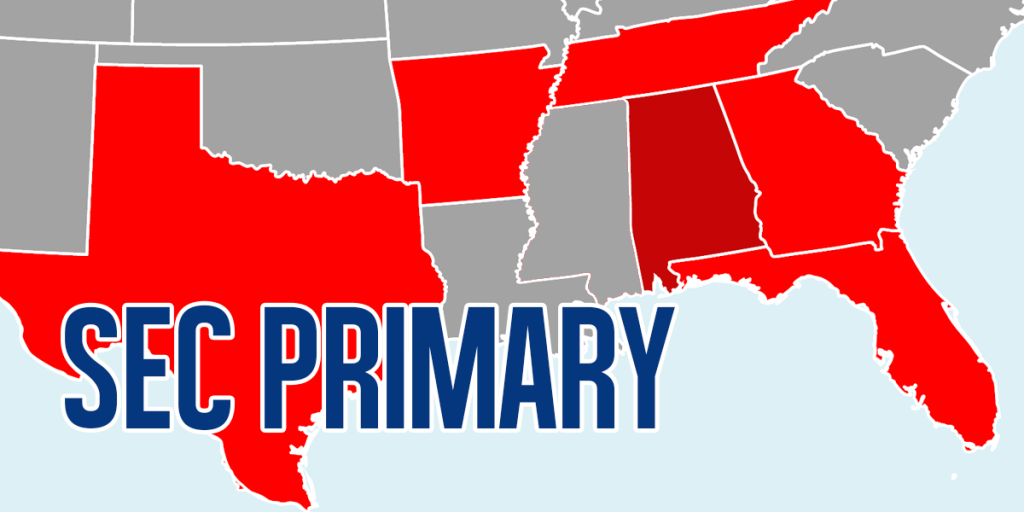
Secretary of State John Merrill, instrumental in creating the SEC Primary, which lumps several Southern states’ primaries together to give a louder voice to Southern voters, celebrated the state’s accomplishments Wednesday. “For the first time in the history of our state, all 67 counties committed to participate in electronic election night reporting,” Merrill said in a news release. “This launch would not have been possible without everyone’s full support and outstanding leadership demonstrated by our Probate Judges and local election officials.” Indeed, just as the polls were closing at 7 p.m. Wednesday, the Secretary’s website began displaying real-time election results. According to Merrill’s statement, there was 100 percent participation in the night’s election reporting. Inclement weather some counties created unexpected delays in reporting, though. However, Merrill’s office deployed necessary staff to help counties ensure accurate results. “1.2 million citizens participated in Alabama’s election March 1,” Merrill said. “This is without a doubt the largest number our state has ever seen in a presidential primary. We attribute this enthusiastic response to the SEC Primary and the excitement that our people have demonstrated as the presidential candidates came to our state and interacted with our people.” All of the major presidential candidates visited the state to campaign, including Tuesday night victors billionaire real estate mogul Donald Trump and former Secretary of State Hillary Clinton. “We look forward to an exciting and engaged General Election in November,” Merrill said. Primary Run-off contests will be held April 12 and the General Election will take place Nov. 8.
House committee hears debate over prison transformation bill
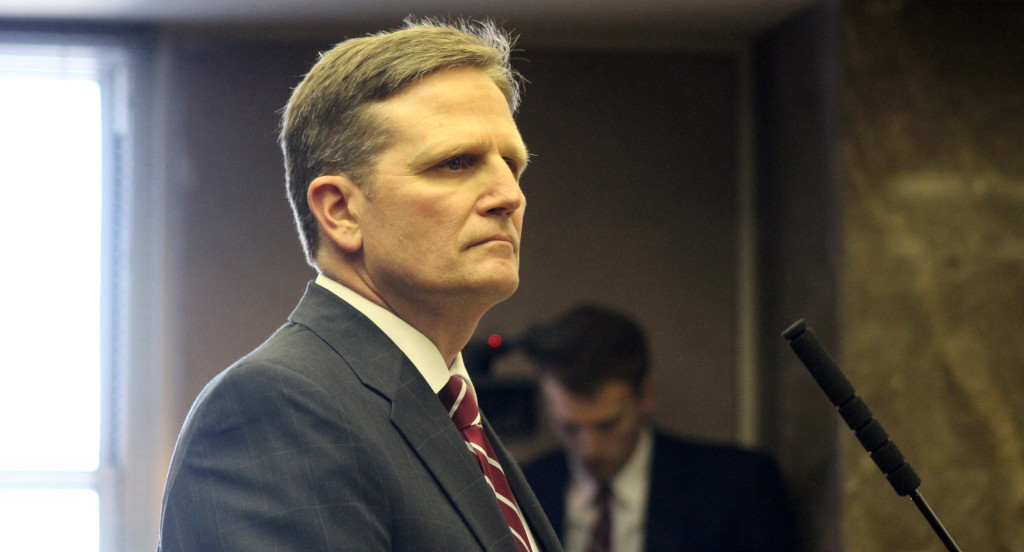
One of the hallmark ideas laid out in the “State of the State” address by Gov. Robert Bentley, a plan to demolish all but two of Alabama’s 16 prisons and replace them with four new facilities, went before the House Ways and Means General Fund Committee Wednesday. The Alabama Prison Transformation Initiative Act, HB313, provides for the sale of about $800 million in bonds for the construction of four super-prisons and the renovation of two facilities yet to be determined. The remaining 14 prisons would be demolished. During the committee hearing, it was revealed that these bonds are to be paid by the Alabama Department of Corrections (ADOC), which will pay a lease on the new facilities to the Alabama Corrections Institute Finance Authority (ACIFA). The rent paid to the ACIFA would then be used to pay off the bonds. In order to get a higher bond rating and, in turn, a lower interest rate, the state put up its 1 mill of property tax as collateral on the bonds. Those funds are currently used to help fund the Alabama Department of Veterans Affairs (ADVA). That raised the ire of ADVA Commissioner Clyde Marsh, who said the department wouldn’t be able to function without the money generated from the 1 mill tax. “We can’t do without that,” Marsh said, noting that the funds generated from the tax account for about $34 million in funding. “You’re putting veterans at risk if you do that.” State Finance Director Bill Newton clarified that the ADVA would still receive that money, it was simply “put up” as a way to acquire better rates from Wall Street. Despite that, Rep. John Knight (D-Montgomery) opposed using veterans’ funding as collateral and was joined in his disdain by Rep. Arnold Mooney (R-Birmingham). Mooney recommended offering up hard assets or land as collateral in place of the 1 mill tax, which Newton said he would explore. Additional concern over the bill came from a slew of architects, engineers and contractors who opposed language in the bill that they said would stifle competition and possibly put taxpayer dollars in jeopardy by allowing contractors to hire their own architects to oversee construction. The argument, as it was presented, notes that if contractors are able to hire their own architects or engineers, those workers will serve at the pleasure of the contractor and be less likely to make efforts to ensure the job is done correctly and efficiently. Rhonda Brownstein, Legal Director for the Southern Poverty Law Center, voiced concerns over building new prisons rather than passing further reforms to reduce the number of prisoners in Alabama’s prison system, noting that reforms passed last year have not even been allowed to play out yet. “Before we move forward with a plan to spend $1 billion, we should see how the current reforms work out,” Brownstein said. “We also need to engage in further reforms, deeper reforms, to get more people out of prison.” Brownstein’s comments drew the wrath of Rep. Connie Rowe (R-Jasper), who noted that the focus should be on attaining better conditions for those people already in prison, rather than finding ways to get people out of prison. “I would build several more prisons and lock a lot more people up,” Rowe said. Rep. Victor Gaston (R-Mobile) concurred saying, “We don’t lock up enough people.” ADOC Commissioner Jefferson Dunn discussed his department’s efforts in evaluating the state’s prison problems and instituting “effective, evidence-based” methods for improving conditions for Alabama’s prisoners. Alabama currently ranks third in the country for most people incarcerated. “A prison is much like a small city with a population that has to be cared for,” Dunn said. “To the extent that we can go from running 16 small cities to running six small cities, we will see significant savings from that alone.” Because public input was widespread, as well as questions and concerns from committee members, no vote was taken on the legislation and it will be taken up again in next week’s meeting.
Patrick Murphy joins in SEIU Florida Minimum Wage Challenge
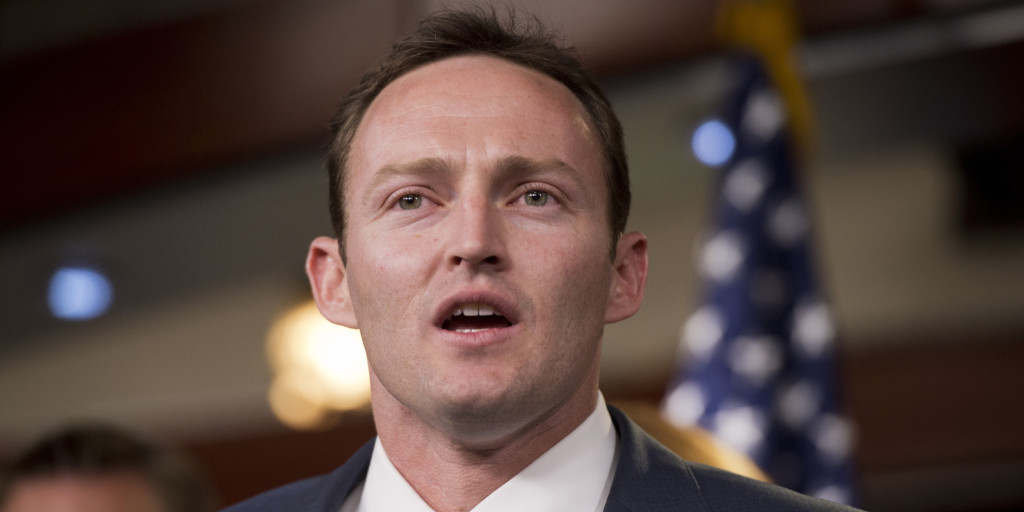
U.S. Rep. Patrick Murphy will try to stretch $85 over five days as part of the Florida Minimum Wage Challenge, the Jupiter Democrat announced Wednesday. The Service Employees International Union launched the Minimum Wage Challenge to advocate for increasing the minimum wage to $15 an hour. Florida’s minimum wage is currently $8.05 an hour. “As living costs rise, hardworking families have not seen a pay raise for far too long, and they deserve better,” Murphy said. “A meaningful increase in our minimum wage would mean bigger paychecks for working families and more customers for small businesses. That’s exactly what Florida needs right now, and I will continue fighting every day to put our middle-class families first.” SEIU came up with the $85 budget based on how much the average minimum wage worker has left over after housing expenses. A 40-hour week at $8.05 an hour comes out to about $285 after taxes, with the average minimum wage worker spending $200 a week on rent and utilities. Challengers are encouraged to take public transportation, go on a grocery shopping trip and see what social activities are affordable with a $17 a day budget. The service industry union notes that actual minimum wage workers would need to spread that money over seven days, not five, which it says is “a little break” for challenge participants. Murphy is the only one of Florida’s 27 representatives who has agreed to the challenge though many state legislators participated in the event in 2015. The first-term congressman is currently running against fellow Democratic U.S. Rep. Alan Grayson and a host of Republicans for Marco Rubio’s Senate seat.
Club for Growth Action begins $1.5 million ad campaign to bring down Donald Trump in Florida

Can Club for Growth ads prevent Donald Trump from winning Florida in 13 days? After his superior effort on Super Tuesday, in which he captured seven states, it appears that nothing can prevent “Teflon Don” from his improbable run to the Republican nomination for president. However, Trump did not run the table, with Oklahoma going to Ted Cruz unexpectedly (Cruz also took Alaska and Texas, while Marco Rubio won Minnesota). Club for Growth Action, the group’s super PAC, ran ads against Trump in Oklahoma, as they did in Iowa, another state where Trump lost out to Cruz. David McIntosh, Club for Growth’s president, told Kimberly Strassel of The Wall Street Journal on Friday that their ads are targeting the 10 to 15 percent of the Republican electorate intrigued by Trump’s brashness, but who ultimately back away upon learning more about his background. The group on Wednesday began a $1.5 million ad campaign against Trump in Florida. The ad, called, “Trump: He’s no tough guy,” attacks Trump for his use of eminent domain and bankruptcy filings. “Trump picks on workers and widows. He won’t do a thing to China and Mexico,” the ad’s narrator says. The Club for Growth isn’t the only super PAC going after Trump in Florida. The Journal also reports that One Principles PAC, a stop-Trump group, is investing in a seven-figure TV ad campaign in Florida, Michigan and Illinois that blasts Trump’s now defunct Trump University.
Study finds Alabama worst state in South for women

A new study from the Institute for Women’s Policy Research ranks Alabama as the worst state in the South for women. The study, “Status of Women in the South,” explores a variety of topics relative to women’s lives, including political participation, employment and earnings, work and family, poverty and opportunity, reproductive rights and health and well-being. In all seven categories, Alabama received a D or F grade. The study examined 14 states deemed “Southern” states — Alabama, Georgia, Tennessee, Mississippi, Arkansas, Louisiana, Kentucky, North and South Carolina, Texas, Virginia, West Virginia, Florida, and the District of Columbia — and, of those, Alabama ranked dead last overall. The breakdown of grading for the state was as follows: Political Participation: D- Employment and Earnings: F Work and Family: D- Poverty and Opportunity: D- Reproductive Rights: D Health and Well-Being: F Along with rating each state individually, the study notes that poverty rates among women in the South are some of the highest in the country and closing the gender wage, estimated to cost Southern women $155.4 billion annually, would reduce women’s poverty rate by more than half. But not all of the findings were negative: Women in the South generally have better access to affordable and quality childcare and Southern women are more likely to be business owners than women in other parts of the country. However, the poverty rate for Southern women, now at 16.4 percent, is higher than non-Southern states, which currently rests just over 13 percent, and women in the South are more likely to die from heart disease and breast cancer, and more likely to suffer from diabetes or AIDS. Further, maternal and infant mortality are startlingly high in the South and 11 Southern states accounted for more than one-third of all female homicides by males.
Ben Carson says ‘no path forward’ after Super Tuesday results
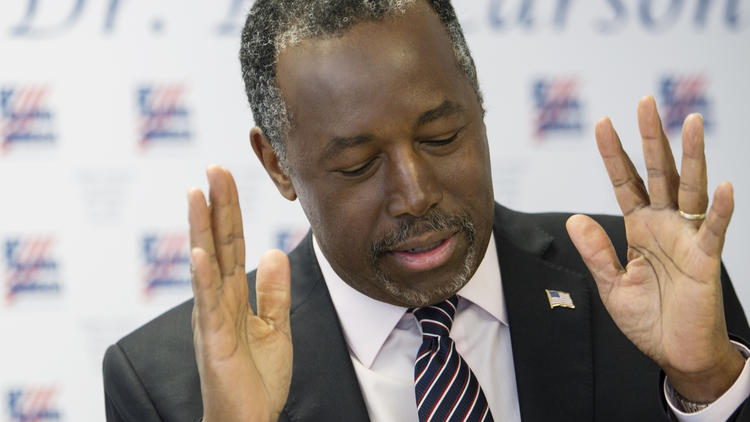
Republican presidential candidate Ben Carson is effectively ending his campaign after a poor finish across the Super Tuesday primaries. Carson says in a statement Wednesday that he sees “no path forward” to the nomination and says he will not attend Thursday’s GOP debate in Michigan. Armstrong Williams, Carson’s longtime business manager, tells the Associated Press it’s “just the reality” that “there’s only one candidate in this 2016 election on the GOP side, and his name is (Donald) Trump.” Williams adds that Sens. Marco Rubio and Ted Cruz also “have no path” and should drop out. It was not immediately clear whether Carson will officially suspend his campaign, but Williams says he no longer will actively seek votes. Another Carson aide, Larry Ross, said Carson will offer “more details” when he speaks Friday at the CPAC gathering, an annual conservative confab. Republished with permission of the Associated Press.
How to stop Donald Trump? GOP leaders search for a way

Gripped by chaos and dismay, Republican leaders searched on Wednesday for a last-chance option to derail Donald Trump‘s momentum fueled by seven commanding Super Tuesday victories. Overshadowed by Trump’s wins, Ted Cruz came in a close second in the night’s delegate haul, thanks to a win in his home state of Texas. The strong showing bolstered the senator’s case to be the party’s Trump alternative, even as rival Marco Rubio vowed to continue his fight. The unrelenting division represented the biggest crisis for the GOP in decades, with the party seemingly on track to nominate a presidential candidate it can’t contain. Some party leaders are considering the once-unthinkable option of aligning behind Cruz, whom many dislike, while others are talking of a brokered convention. Some influential outsiders even raise the option of forming a new party. Though convention fights are much more talked about than actually occur, an Associated Press delegate count indicates Trump will have to do better in upcoming contests to claim the nomination before the party’s national gathering in July. So far, he has won 46 percent of the delegates awarded, and he would have to increase that to 52 percent in the remaining primaries. The GOP mayhem contrasts sharply with the increasing cohesion on the Democratic side, where Hillary Clinton locked down solid victories in seven states and was on the path to regaining her status as the inevitable nominee. Clinton’s dominance with black voters carried her to wins across the South. Still, Bernie Sanders picked up wins in his home state of Vermont as well as Minnesota, Oklahoma and Colorado, and he said he would fight on. The Democratic drama paled in comparison to the existential questions Republicans wrestled with in the wake of the most significant election night of the primary. Trump won handily in states as politically opposite as Massachusetts and Alabama, a sign of his broad, outsider appeal and energizing impact on voter turnout. Along with Texas, Cruz took neighboring Oklahoma and also Alaska. Florida Rubio won only liberal Minnesota. Despite Trump’s commanding victories, many Republican leaders remained deeply skeptical he could beat Clinton in a head-to-head matchup in November — and some questioned whether they’d want him in the White House if he did. They turned to the sort of “break glass” options once thought impossible. “Ted Cruz is not my favorite by any means,” Sen. Lindsey Graham, a former candidate whose disdain for his Texas colleague is well known, told CBS News. “But we may be in a position where rallying around Ted Cruz is the only way to stop Donald Trump and I’m not so sure that would work.” Still, Graham also cast doubt on whether elder GOP statesmen could wrest hold of the situation. “At what point do you realize the Republican Party is unorganized — like the Democratic Party? There’s no secret group of people,” he scoffed. The comments came as #NeverTrump hashtag spread across Twitter and an anti-Trump Super Pac released a new online video and said it would increase its daily attacks ahead of primaries on March 8 and March 15. Our Principles PAC latest attack blasts Trump for not clearly repudiating David Duke, a onetime KKK member who endorsed Trump’s campaign. Other prominent Republicans called for more drastic measures. “It may be necessary for men and women of principle within the party to set the self-detonation sequence as they escape the ship to a new party,” wrote conservative blogger Erick Erickson. Erickson was among those calling on the party to coalesce around Cruz. In his victory speech, Trump sent a clear message to the GOP establishment, warning to House Speaker Paul Ryan, who had declared earlier Tuesday that “this party does not prey on people’s prejudices,” that if the two don’t get along, Ryan is “going to have to pay a big price.” Delegate math would seem to underscore the problem for Republicans who reject Trump. For the night, Trump won at least 234 delegates and Cruz won at least 209. Rubio was a distant third with at least 90. There were still 40 delegates left to be allocated. Overall, Trump leads with 316 delegates and Cruz has 226. Rubio has 106, John Kasich has 25 and Ben Carson eight. The math was also tough for Sanders. Clinton was assured of winning at least 457 of the 865 delegates at stake Tuesday. Sanders gained at least 286. When including party leaders, Clinton has at least 1,005 delegates and Sanders has at least 373. It takes 2,383 to win the nomination. Top Sanders advisers argue that Super Tuesday was the best day on the primary calendar for Clinton. But the map will get more difficult for her moving forward, said Sanders senior adviser Tad Devine. Republished with permission of the Associated Press.
Chris Christie’s shell-shocked look stirs mockery, befuddlement

Was that really Chris Christie, the brusque, take-a-back-seat-to-no-one governor of New Jersey? Christie’s seemingly shell-shocked gaze as he stood behind Donald Trump on Super Tuesday is generating befuddlement and mockery in his home state and beyond. Conservatives and liberals alike have piled on. His introductory remarks were so subdued and his appearance was so grave that many people joked on the Internet that he looked like a hostage reading a coerced statement. “Gov. Christie, blink twice if you’re in trouble!” one person tweeted. In a move that shocked nearly everyone, especially in Democratic-leaning New Jersey, Christie endorsed Trump last week and has appeared at the billionaire businessman’s side at campaign appearances over the past few days. But after Tuesday night’s appearance, conservative commentator Jonah Goldberg of the anti-Trump National Review imagined Christie was thinking: “My God what have I done?” Others saw the same thing in Christie’s blank stare and robotic words of introduction. Aside from Tuesday night, Christie appears to be fully embracing his surrogate duties. The governor has introduced Trump at a number of enthusiastic rallies and has been Trump’s attack dog, sinking his teeth into Sen. Marco Rubio and vouching for Trump and his family. Back home, the reaction has been fierce. Republican Christine Todd Whitman, the former New Jersey governor and Environmental Protection Agency administrator, told The Star-Ledger of Newark last week she would rather vote for Hillary Clinton than Trump. “I am ashamed that Christie would endorse anyone who has employed the kind of hate mongering and racism that Trump has,” she said. Six Gannett newspapers in New Jersey, including the Asbury Park Press, said he isn’t fit to be governor anymore. They called him a political opportunist who has neglected his duties in the Garden State, and urged him to resign. A Fairleigh Dickinson University poll saw Christie’s approval ratings fall from 33 percent before he backed Trump to 27 percent since. The poll sampled 694 registered New Jersey voters, with a margin of error of plus or minus 3.9 percentage points. “Trump and Christie kind of do belong together, but not running our country,” said Barbara Silverstein of Gibbsboro, New Jersey. “It’s a big show, and it’s pretty pathetic.” In the past few days, the politician with the outsized personality seemed to be shrinking in political stature even if something big — perhaps the No. 2 spot on the ballot with Trump — is his goal. Trump was heard on a microphone telling Christie to get on a plane and go home after Christie was pressed Sunday in an ABC interview about his disagreement with Trump on his proposed ban on Muslims. Christie refers to the candidate, who is supposedly his longtime friend, as “Mr. Trump,” while Trump refers to the governor as “Chris.” Christie defended his endorsement this week on his regular radio call-in show. “I’ve known him personally for 14 years and I believe he is the best person to beat Hillary Clinton,” the governor said, before clarifying that he, Christie, was the best candidate but that Trump is the best of the remaining contenders. Christie wouldn’t discuss on the call-in show whether he was hoping for a vice presidential or Cabinet slot. Asked about his previous criticisms of Trump, Christie said that was a natural part of having to run against him — no different, he said, from George H.W. Bush calling Ronald Reagan‘s policies “voodoo economics” before becoming his vice presidential pick. To Montclair State University political science professor Brigid Harrison, Christie’s seeming thousand-yard stare seemed to reflect sadness. “It really looked like heartbreak and kind of a bitter pill that he was swallowing,” she said. “I still think that in his heart of hearts he thinks he was destined to be president of the United States.” Republished with permission of the Associated Press.
Last dry county in Alabama legalizes alcohol sales

Alabama’s last totally dry county is going wet. Residents in the Clay County cities of Ashland and Lineville voted Tuesday to legalize alcohol sales. Alcohol sales will still be illegal outside the cities. But the vote means alcohol can now be sold legally in at least part of each of Alabama’s 67 counties. Bootleggers have operated in Clay County for years, and possession of small amounts of alcohol in the county has been legal. The issue last came up for a countywide vote in 1986, when church opposition killed a proposal to go wet. Opponents argued against legalizing alcohol sales on moral and public-safety grounds. But supporters say allowing the sale of alcoholic beverages will help stimulate business in the rural, east Alabama county.
State education budget sees widespread support in committee hearing

The House Ways and Means Education Committee heard public remarks Wednesday regarding the Education Trust Fund budget. The budget, which centers on a bill sponsored by Rep. Bill Poole (R-Tuscaloosa), includes a series of bills that together create a package that addresses appropriations, pay raises and more. HB117 calls for, among other things, a $14 million increase in funding for Alabama’s top-ranking Pre-K program. The two-year increase in funding will amount to $24 million, bringing funding to the program to more than $60 million. The most significant increases in the education budget are reserved for K-12 programs, specifically a 4 percent pay raise for all public school employees making less than $75,000 annually. Those making over that threshold would receive a 2 percent salary increase. The bill calls for the full funding of the teachers’ retirement system and an additional $8 million for textbooks, whether hardback or digital. An additional $7 million dollars is being appropriated for transportation and an increase of $5 million for classroom technology, which will accompany the $12 million allocated via the WIRED Ahead Act. Employees with the community college system will see a 4 percent pay raise, as well a funding increase of $2 million for career technology, while university employees will receive a 1 percent pay raise. The committee members then allowed members of public, which nearly filled the meeting room on the main floor of the Statehouse, to speak for or against the measure. In all, more than 10 people spoke in favor of the measure, the majority of whom work in Pre-K and public library programs. Many of those who supported the legislation also rallied for increases to the Alabama Public Library System, noting that the program serves a wide array of students and adults through digital services. Once discussion on the budget completed, two people spoke up against HB121, also sponsored by Poole, which specifies the pay increase for public education employees. Susan Kennedy, Public Policy and Governmental Relations Manager for the Alabama Education Association, made perhaps the finest point on the need for Alabama teachers to receive a significant pay raise. Kennedy cited data showing that the rate of inflation has increased by 10.5 percent since 2009, while teachers have gone without a raise, and noted that a 5 percent raise for teachers would amount to an economic boost of about $22 million in the first year. Kennedy also brought up concerns over line items in the bill, echoed later by Rep. Patricia Todd (D-Birmingham), which have little or nothing to do with education: specifically $109 million allocated for the Supreme Court Library, the Civil Air Patrol, veterans education programs, Alabama Archives and History, and other “pet projects” specific to legislators’ districts. Though the conversation about the two bills continued for nearly two hours, the committee ended up giving a favorable report to both, as well as the accompaniment bills that specify particular items in the budget.
Marco, it’s the length of your coffin that matters

One of my favorite short stories is Tolstoy’s classic, “How Much Land Does a Man Need?“ In it, Tolstoy introduces us to Pahom, an ordinary Russian with extraordinary ambitions who wants to own vastly more land. Satan arranges for Pahom to meet a landowning rural family, the Bashkirs, who make the striving Pahom a remarkable offer: Pahom can walk across their vast holdings with a shovel and mark the territory he wishes to own, and if he makes it back to the starting point by sunset to complete the circle, he will own everything within the boundary he marked. Pahom begins the task buoyed by his boundless greed, and by late afternoon he finds himself far from the starting point. So, he runs to the starting point to beat the setting sun, but he arrives exhausted and breathless and dies on the spot where he began. Later, Pahom is buried in a grave six feet long, and we learn at last how much land a man needs. Marco Rubio seems obsessed with size of Donald Trump’s hands, but like Tolstoy’s Pahom, Florida’s junior Senator could better spend his time pondering the wages of blind ambition. For two years, Rubio has harbored a gross miscalculation; that is, that there is no downside for him running for president. His belief was that even if he lost the primary or general election, he will have exposed the Rubio brand to donors, voters, and the media on a national stage, and that exposure alone is worth the risk of losing. But, here he is wrong, for to be exposed as a treacherous callow loser is a powerfully negative thing, and to fail to win your own state amplifies the effect even more. By the time Rubio arrives at sundown at the place where he started, he risks not only losing this race but all future races. Why do I say treacherous and callow? Treacherous, because Rubio has that lean and hungry look that drives him to turn without compunction on those who fostered his career. For almost a decade Jeb Bush was instrumental in creating a Golden Era for Republicans in Florida in which conservative programs and ideas could quickly take root and grow. Bush catalyzed nothing short of a revolution in state government where all the big pieces – education, healthcare, criminal justice, tax policy, social services — were re-imagined and branded with a conservative, forward-thinking Republican stamp. Rubio was one of the many beneficiaries of the success of these programs that allowed him to receive accolades for, frankly, victories not of his making. One would think that given this boost from Bush and the personal interest Bush took in advancing Rubio’s credibility and career, Rubio might have paused before deciding to challenge his ostensible friend and political godfather. Rubio never hesitated. He went for the kill. Callow, because Rubio is too naïve and immature to realize that there is a high price to be paid for treachery and failure. Although Bush is now out of the race, Bush’s powerful friends and supporters are not out of Florida. One of the most remarkable but least discussed aspects of this cycle has been how little support Rubio has received from the colleagues who worked with him shoulder to shoulder in the Florida legislature. It is profoundly revealing and would be to a normal person a cause for intense self-examination. (Alas, Rubio is not a normal person.) In fact, it shows that for decades to come it will be the Bush crowd, and not the Rubio gang, that will be making the business and political decisions that guide the economy and political power structure of the Sunshine State. Many of them have remarked to me that they will never forgive Marco for his heedless ambition. And, Rubio is likely to soon learn the price of high-profile failure in his home state of Florida. Bush had the smarts to get out why the getting was good, but Rubio seems determined to ride out this race until he has proven to everyone’s satisfaction that he can be defeated in Florida by the short-fingered vulgarian, Donald Trump. In the process, he has lowered himself to Trump’s level with penis jokes and spray-tan putdowns; the sort of sophomoric and un-presidential banter that that will remain in the minds of voters long after Rubio has skipped off the public stage in his high-heel boots. As a side note, I assume nobody is more pleased with Rubio’s suspension of reality than Adam Putnam who one day might have to post up against Rubio in a gubernatorial primary. If Rubio loses in Florida on March 15th, Putnam is given a powerful narrative to discount Rubio as a gubernatorial candidate going into the next election cycle. If Rubio were smart, humble, or merely had the instinct for self-preservation found in the average rodent he would get out of the race before the virtually inevitable failure he faces on his home turf in 13 days. He is behind Trump in every Florida poll (wildly in some cases), and in the deeply conservative Panhandle he is behind both Trump and Cruz. Unless lightning strikes, Rubi is going to lose, and he’s going to lose big. And the losing doesn’t end after that ignominious failure. It’s only beginning at that point. Unless he starts playing it smart, despite his remorseless striving Rubio’s political career will get at a very young age what most of us hope to delay for many decades: six feet of dirt and no more.


